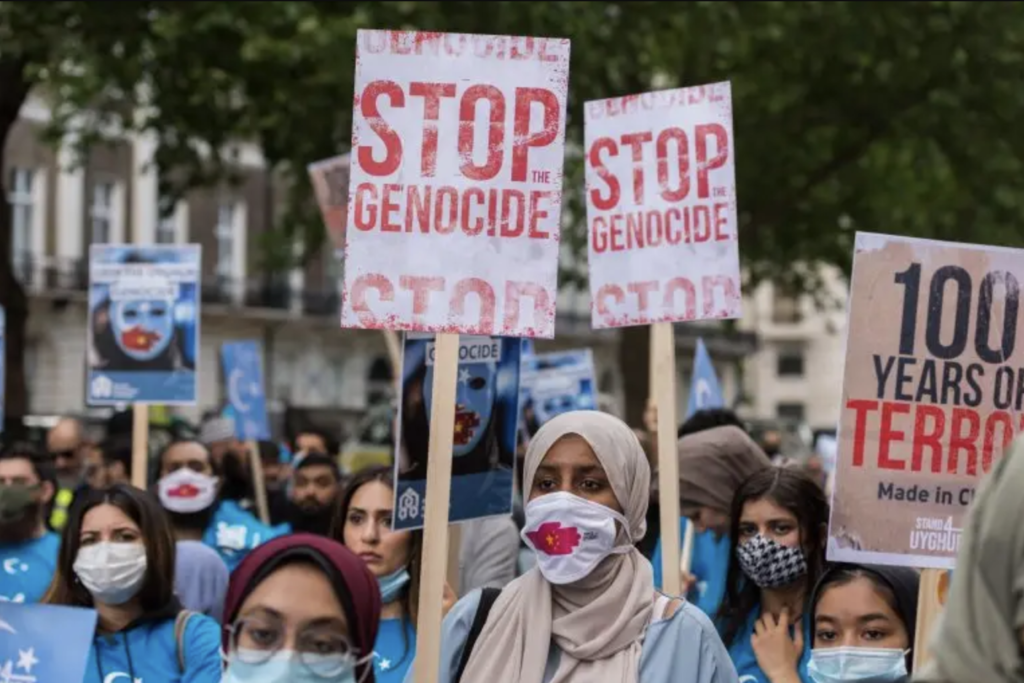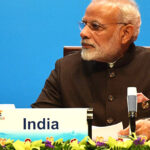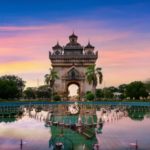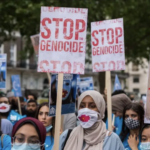
Since 2018, the human rights environment in mainland China and its associated autonomous regions has deteriorated. The evidence is overwhelming. The latest US State Department Report on China’s human rights record recognised ‘genocide and crimes against humanity’ against Muslim Uyghurs as well as members of other religious and ethnic groups in the Xinjiang region. These crimes included the ‘severe deprivation of physical liberty of more than one million civilians’ as well as ‘forced sterilization, coerced abortions’ and ‘draconian restrictions on freedom of religion, expression, and movement’.

The United Nations Office of the High Commissioner of Human Rights (OHCHR) on its own assessment of abuses in the Xinjiang region wrote that the deprivation [of Uyghur rights] may constitute international crimes, ‘in particular crimes against humanity’.
On 24 January 2024, the UN Human Rights Council will begin the process of China’s Fourth Cycle Universal Periodic Review (UPR), where the Chinese government has already begun a narrative of resistance to the concept of universality, noting in its National Report that it will follow a ‘Chinese path of human rights development’, where it applies an authoritarian approach by challenging international human rights norms, including a hierarchical approach in keeping with an old argument of ‘Asian Values’, and ‘hub-and-spoke’ institutions that alter the nature of global governance.
Evidence of China’s norm-shattering strategy, which runs counter to United Nations principles and the UPR — an instrument of peer-review required of all UN member states — is overwhelming and has been since the strategy’s last review in 2018. Countries that had more dependent relationships with Beijing were more likely to make generic recommendations to China during the 2018 Third Cycle Review. Pakistan’s rather benign suggestion to ‘continue to promote discussions in the Human Rights Council on the role of development in promoting and protecting human rights’, may be an act of caution because of China’s US$62 billion investment in the Gwadar Port and the larger China-Pakistan Economic Corridor.
Likewise, pre-coup Myanmar made non-specific recommendations on poverty, rural development and child rights. China in 2018 was considering major investments in addition to positions in a deep sea port at Kyauk Pyu. China’s heavy investments triggered worries that it would have a ‘dangerous level of economic leverage over Myanmar’ because of infrastructure-related debt. It was no surprise that many of the same countries that submitted bland recommendations to China in 2018 were also supportive of Chinese President Xi Jinping after the June 2020 National Security Law for Hong Kong was implemented.
This strategy provides China with the thinnest veneer of legitimacy. Beijing can claim that it ‘accepted 284 of the 346 recommendations [or 82 per cent] put forward by various countries’ and that it ‘attaches great importance to follow-up work’, statements that were echoed by high-level officials and the Chinese media.
After the release of the Xinjiang report, 51 countries — led by the United Kingdom — urged China to end its abuses in Xinjiang and to more fully cooperate with the OHCHR. Yet just days later, Fiji, which is currently caught in a struggle between great powers over their influence in Pacific Island states, withdrew from the UK-led joint statement. While new UN Human Rights chief Volker Turk called upon China to take strong action on the recommendations made in the report, his own language centred mainly on generic topics, such as poverty or creating a more participatory approach to politics.
The January 2024 review of China’s human rights record will happen amid a deeply hostile environment for minorities and an increasingly desperate Hong Kong population. An assortment of UN experts and Treaty Bodies have expressed concerns about the ability of Tibetans to freely move about and the status of nine Tibetan environmental human rights defenders serving long prison sentences. Many have worried about China’s grand narrative of ‘counterterrorism’ in response to the Uyghur population. The flood of transnational repression of the Hong Kong diaspora and the trials of media figures like Jimmy Lai will serve as a backdrop to a hollow review that the defenders of universal human rights will be powerless to prevent.
This is because China’s work in securing the allegiance of states from Latin America, Africa, the Caribbean, Southeast Asia and the Pacific Islands has been a work in progress. It has been paying dividends, both in the solidification of strategic and economic partnerships and of increased dependence. In Latin America, economic, security and energy ties have shaped Chinese diplomacy. Decades of development cooperation in Africa have also paid dividends, as well as increased its continental influence. In Southeast Asia, namely Laos, economic dependence facilitates their participation in doing Beijing’s dirty work, such as the detention of Chinese human rights lawyer Lu Siwei.
The UN human rights system has always been controversial, which eventually led to a decision to replace the old Commission on Human Rights and the creation of the UPR in March 2006. Yet China’s abuse of the human rights system requires a firm and consistent response from those who remain committed to a human rights order free from the manipulation of autocratic states and remain firm in holding Beijing to account in the January review and in the years to follow.






